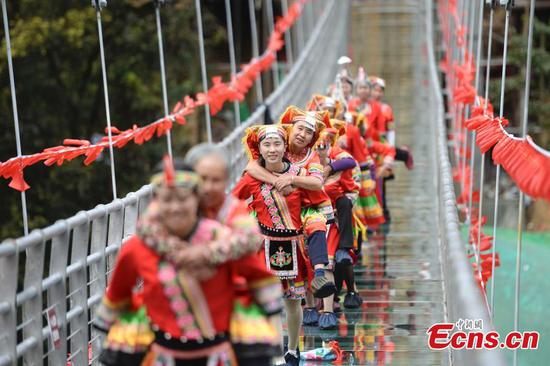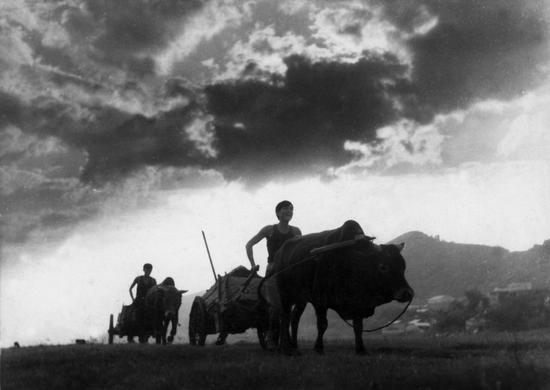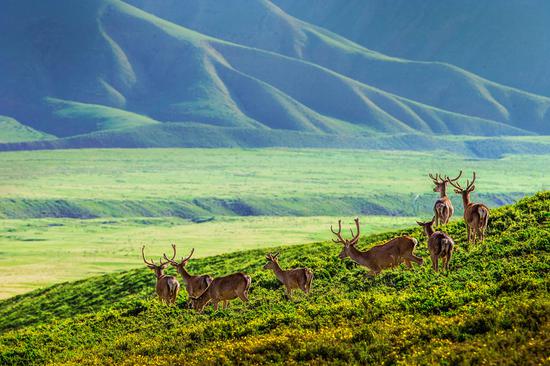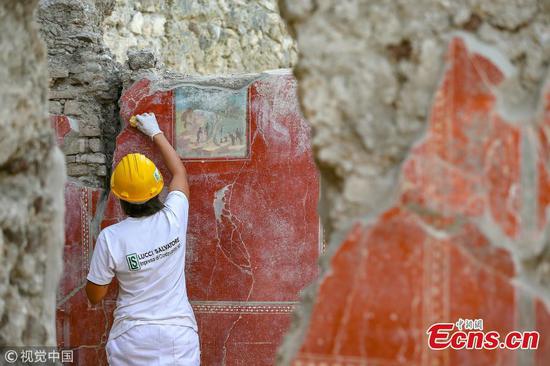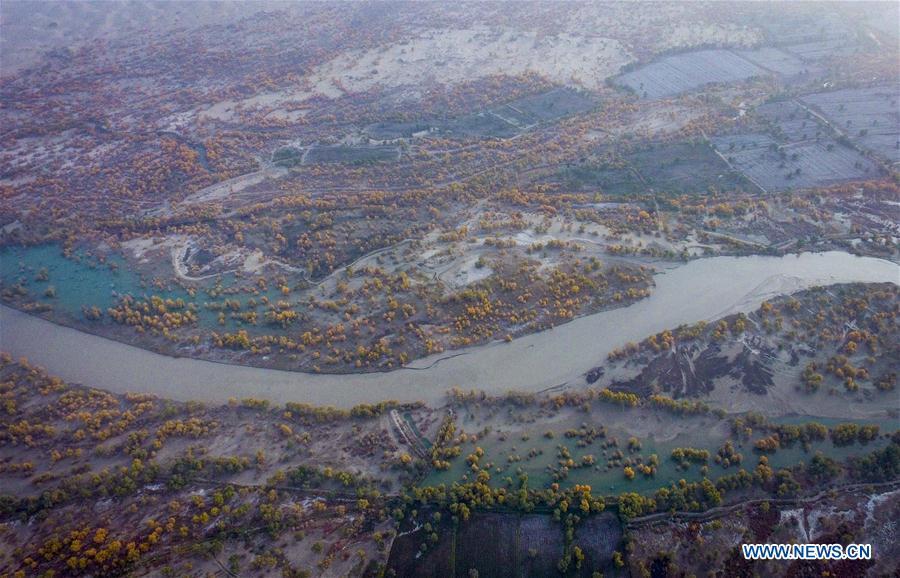
Aerial photo shows the scenery of desert poplar forests in Yuli County, northwest China's Xinjiang Uygur Autonomous Region, Oct. 16, 2018. The Lop Nur people depended basically on fishing for livelihood and developed a distinct culture based on their special lifestyle. Located in Tarim basin, Yuli is known for its natural scenery and ethnic culture and keeps attracting numerous tourists from at home and abroad. From Oct. 1 to 16, 2018, Yuli County has received more than 230,000 visitors, with a year-on-year increase of 31.46 percent. (Xinhua/Zhao Ge)
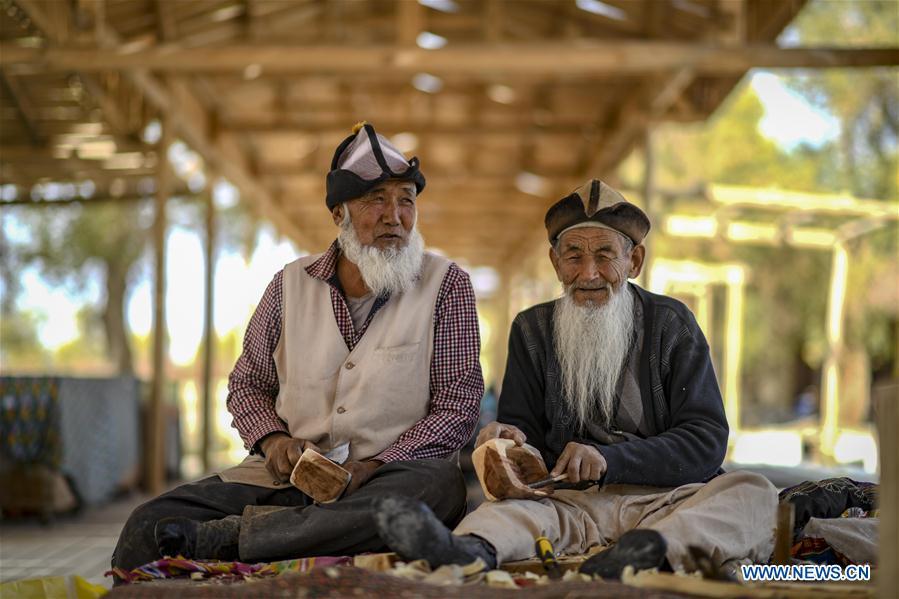
Two residents make models of a special kind of dugout canoe made of desert poplar in Lop Nur People Village of Yuli County, northwest China's Xinjiang Uygur Autonomous Region, Oct. 16, 2018. The Lop Nur people depended basically on fishing for livelihood and developed a distinct culture based on their special lifestyle. Located in Tarim basin, Yuli is known for its natural scenery and ethnic culture and keeps attracting numerous tourists from at home and abroad. From Oct. 1 to 16, 2018, Yuli County has received more than 230,000 visitors, with a year-on-year increase of 31.46 percent. (Xinhua/Zhao Ge)
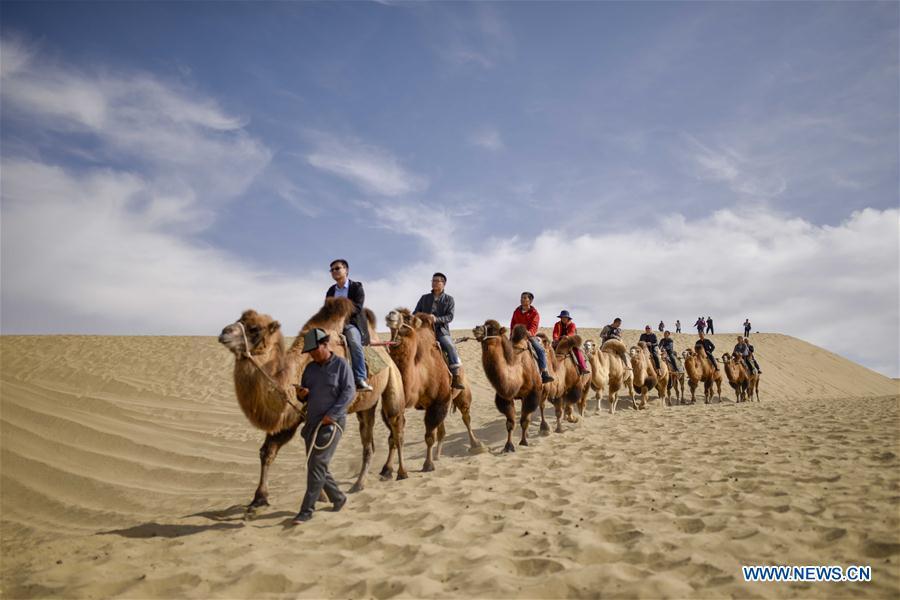
Tourists ride camels in Lop Nur People Village of Yuli County, northwest China's Xinjiang Uygur Autonomous Region, Oct. 16, 2018. The Lop Nur people depended basically on fishing for livelihood and developed a distinct culture based on their special lifestyle. Located in Tarim basin, Yuli is known for its natural scenery and ethnic culture and keeps attracting numerous tourists from at home and abroad. From Oct. 1 to 16, 2018, Yuli County has received more than 230,000 visitors, with a year-on-year increase of 31.46 percent. (Xinhua/Zhao Ge)
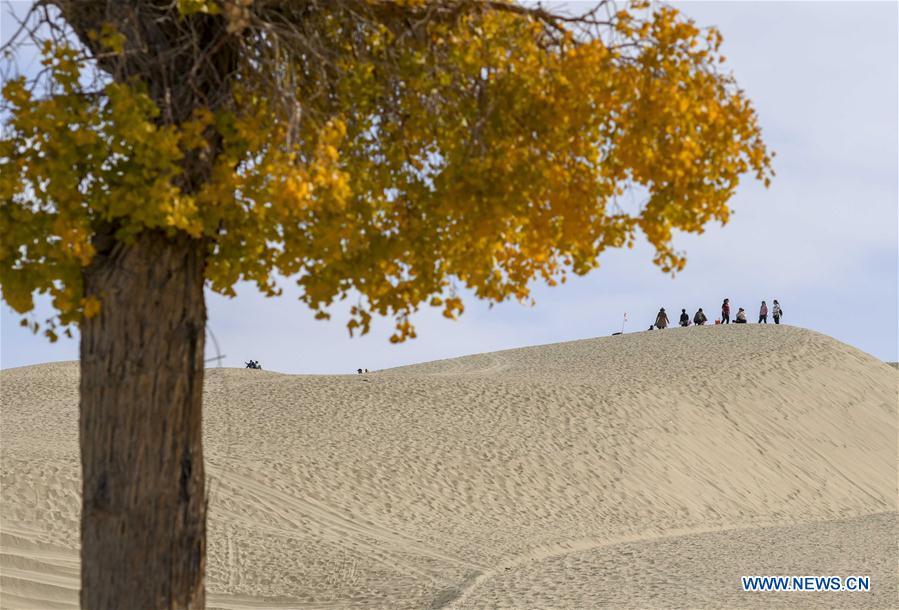
Tourists view scenery on a sand ridge in Lop Nur People Village of Yuli County, northwest China's Xinjiang Uygur Autonomous Region, Oct. 16, 2018. The Lop Nur people depended basically on fishing for livelihood and developed a distinct culture based on their special lifestyle. Located in Tarim basin, Yuli is known for its natural scenery and ethnic culture and keeps attracting numerous tourists from at home and abroad. From Oct. 1 to 16, 2018, Yuli County has received more than 230,000 visitors, with a year-on-year increase of 31.46 percent. (Xinhua/Zhao Ge)
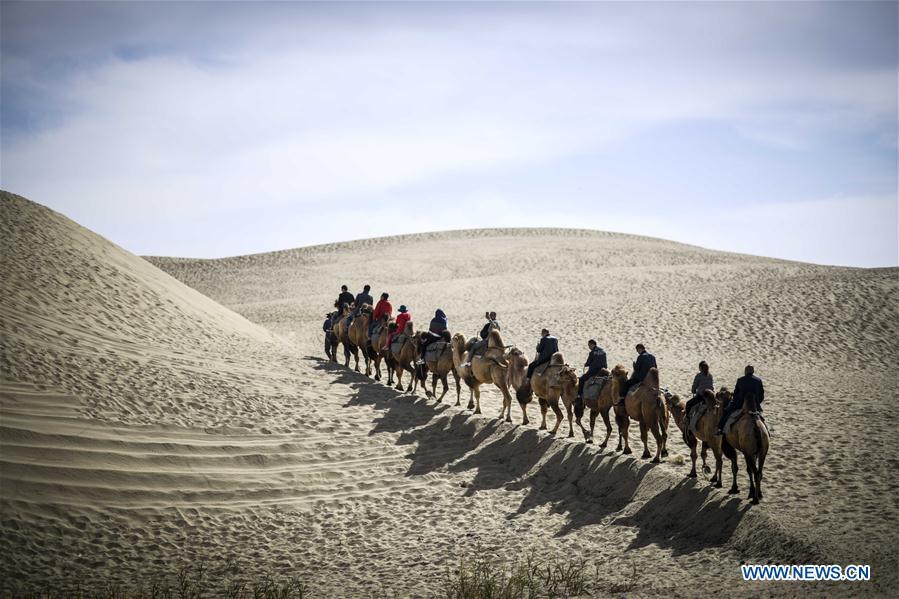
Tourists ride camels in Lop Nur People Village of Yuli County, northwest China's Xinjiang Uygur Autonomous Region, Oct. 16, 2018. The Lop Nur people depended basically on fishing for livelihood and developed a distinct culture based on their special lifestyle. Located in Tarim basin, Yuli is known for its natural scenery and ethnic culture and keeps attracting numerous tourists from at home and abroad. From Oct. 1 to 16, 2018, Yuli County has received more than 230,000 visitors, with a year-on-year increase of 31.46 percent. (Xinhua/Zhao Ge)
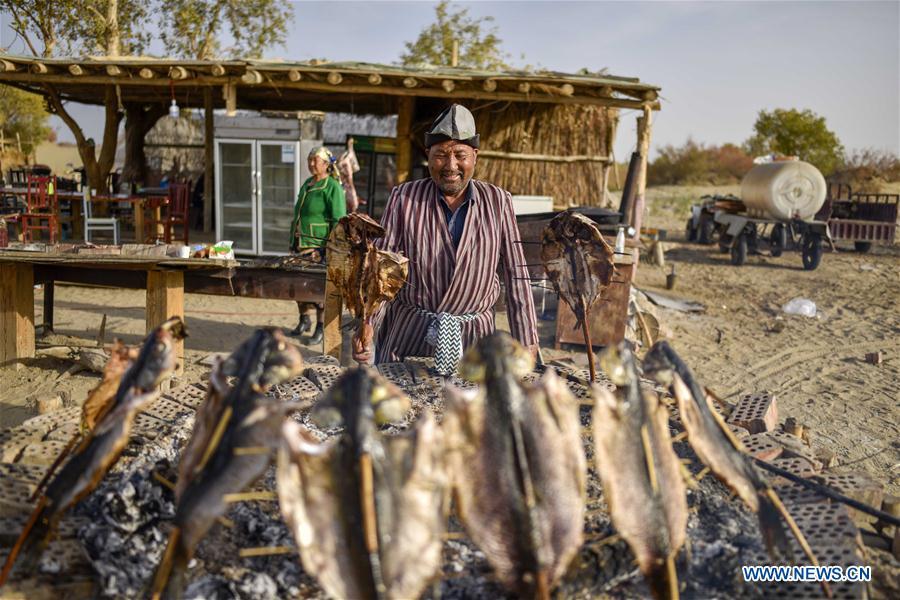
A resident makes roast fish at the Lop Nur People Village of Yuli County, northwest China's Xinjiang Uygur Autonomous Region, Oct. 16, 2018. The Lop Nur people depended basically on fishing for livelihood and developed a distinct culture based on their special lifestyle. Located in Tarim basin, Yuli is known for its natural scenery and ethnic culture and keeps attracting numerous tourists from at home and abroad. From Oct. 1 to 16, 2018, Yuli County has received more than 230,000 visitors, with a year-on-year increase of 31.46 percent. (Xinhua/Zhao Ge)










